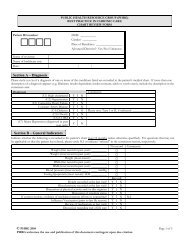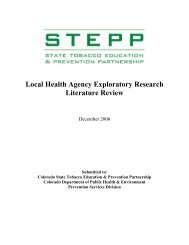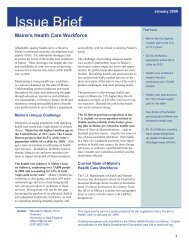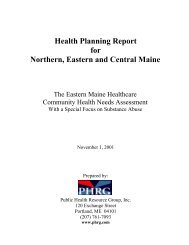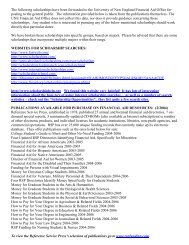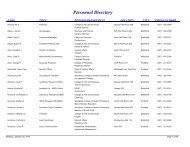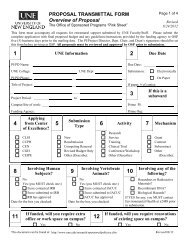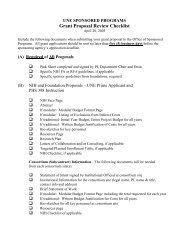National Electronic Disease Surveillance System (NEDSS ...
National Electronic Disease Surveillance System (NEDSS ...
National Electronic Disease Surveillance System (NEDSS ...
You also want an ePaper? Increase the reach of your titles
YUMPU automatically turns print PDFs into web optimized ePapers that Google loves.
<strong>NEDSS</strong> Phase II, Deliverables 1 and 2<br />
Risk Management Plan - A formal document that identifies project risks and specifies the plans<br />
to reduce these risks.<br />
Role - A defined responsibility (usually task) to be carried out by one or more individuals.<br />
Scope - The established boundary (or extent) of what must be accomplished; during planning,<br />
this defines what the project will consist of (and just as important, what the project will not<br />
consist of).<br />
Security - The establishment and application of safeguards to protect data, software, and<br />
hardware from accidental or malicious modification, destruction, or disclosure.<br />
Security Test - A formal test performed on an operational system, based on the results of the<br />
security risk assessment in order to evaluate compliance with security and data integrity<br />
guidelines, and address security backup, recovery, and audit trails. Also called Security Testing<br />
and Evaluation (ST&E).<br />
Software - Computer programs (code), procedures, documentation, and data pertaining to the<br />
operation of a computer system. Compare to Hardware.<br />
<strong>System</strong> - A collection of components (hardware, software, interfaces) organized to accomplish a<br />
specific function or set of functions; generally considered to be a self-sufficient item in its<br />
intended operational use.<br />
<strong>System</strong> Concept Development Phase - Phase that starts the life cycle; begins when a need to<br />
develop or significantly change a system is identified, then the approaches for meeting this need<br />
are reviewed for feasibility and appropriateness (for example, cost-benefit analysis).<br />
<strong>System</strong> Design Document - A formal document that describes the system architecture, file and<br />
database design, interfaces, and detailed hardware/software design; used as the baseline for<br />
system development.<br />
<strong>System</strong>s Analysis - In systems development, the process of studying and understanding the<br />
requirements (customer needs) for a system in order to develop a feasible design.<br />
<strong>System</strong> Security Plan - A formal document that establishes the processes and procedures for<br />
identifying all areas where security could be compromised within the system (or subsystem).<br />
<strong>System</strong> Software - Software designed to facilitate the operation of a computer system and<br />
associated computer programs (for example, operating systems, code compilers, utilities).<br />
Compare to Application Software.<br />
<strong>System</strong> Test - The process of testing an integrated hardware/software system to verify that the<br />
system meets its documented requirements.<br />
Task - In project management, the smallest unit of work subject to management accountability; a<br />
work assignment for one or more project members fulfilling a role, as defined in a work<br />
breakdown structure.<br />
Test - The process of exercising the product to identify differences between expected and actual<br />
results and performance. Typically testing is bottom-up: unit test, integration test, system test,<br />
and acceptance test.<br />
Test Case - A specific set of test data and associated procedures developed for a particular test.<br />
Test Files/Data - Files/data developed for the purpose of executing a test; becomes part of a test<br />
case. See Test Case.<br />
PHRG Page 28 of 35 September 28, 2001





